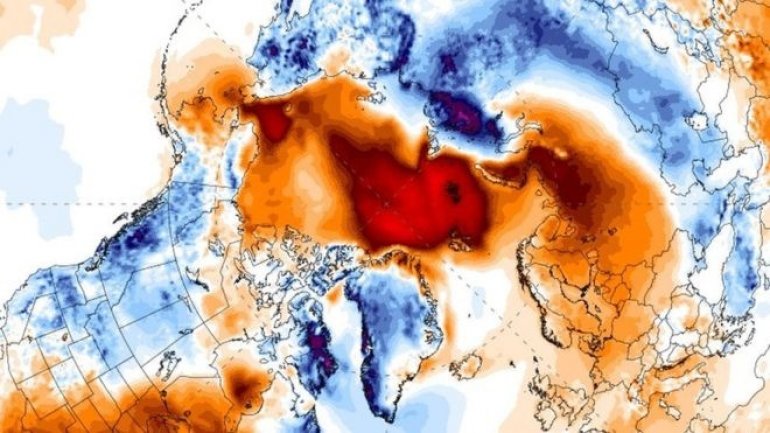Scientists: Arctic heatwave could break records
 foto: University of Maine/ climatereanalyzer.org
foto: University of Maine/ climatereanalyzer.org
Temperatures at the North Pole could be up to 20 degrees higher than average this Christmas Eve, in what scientists say is a record-breaking heatwave, informs BBC.
Climate scientists say these unseasonably warm weather patterns in the Arctic region are directly linked to man-made climate change.
Temperatures throughout November and December were 5C higher than average.
It follows a summer during which Arctic sea ice reached the second-lowest extent ever recorded by satellites.
Dr Friederike Otto, a senior researcher at Oxford's Environmental Change Institute told BBC News that in pre-industrial times "a heatwave like this would have been extremely rare - we would expect it to occur about every 1,000 years".
Dr Otto added that scientists are "very confident" that the weather patterns were linked to anthropogenic climate change.
Temperatures are forecast to peak on Christmas Eve around the North Pole - at near-freezing.
The warm air from the North Atlantic is forecast to flow all the way to the North Pole via Spitsbergen, giving rise to clouds that prevent heat from escaping.
Forecasting models show that there is about a 2% chance of a heatwave event occurring every year.
Environment
- Research: World's largest reindeer herd drops in number
- Study: White wine raises melanoma risk
- Unusual warm weather in Arctic, prone to cause havoc in northern hemisphere
- New species of spider named after "Harry Potter" sorting hat
- Spy satellites reveal Himalayan melt
- Scientists discover planet-eating Death Star similar to Sun